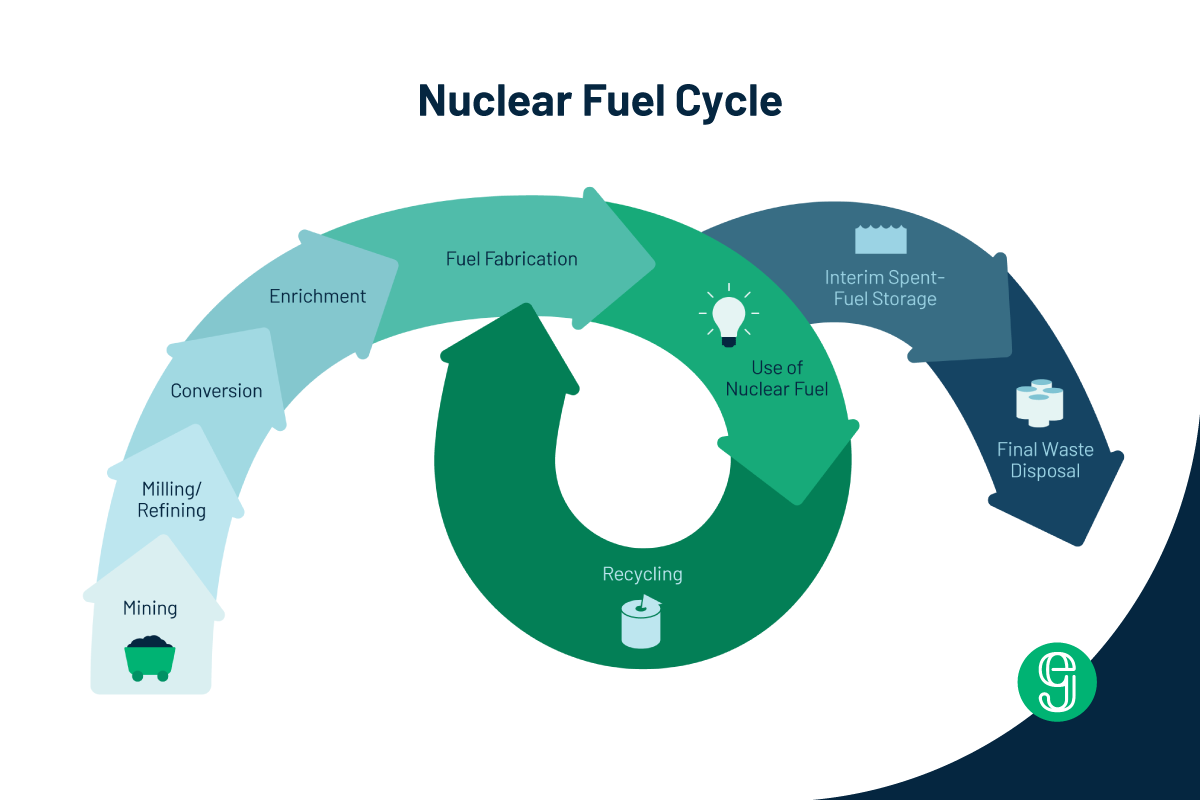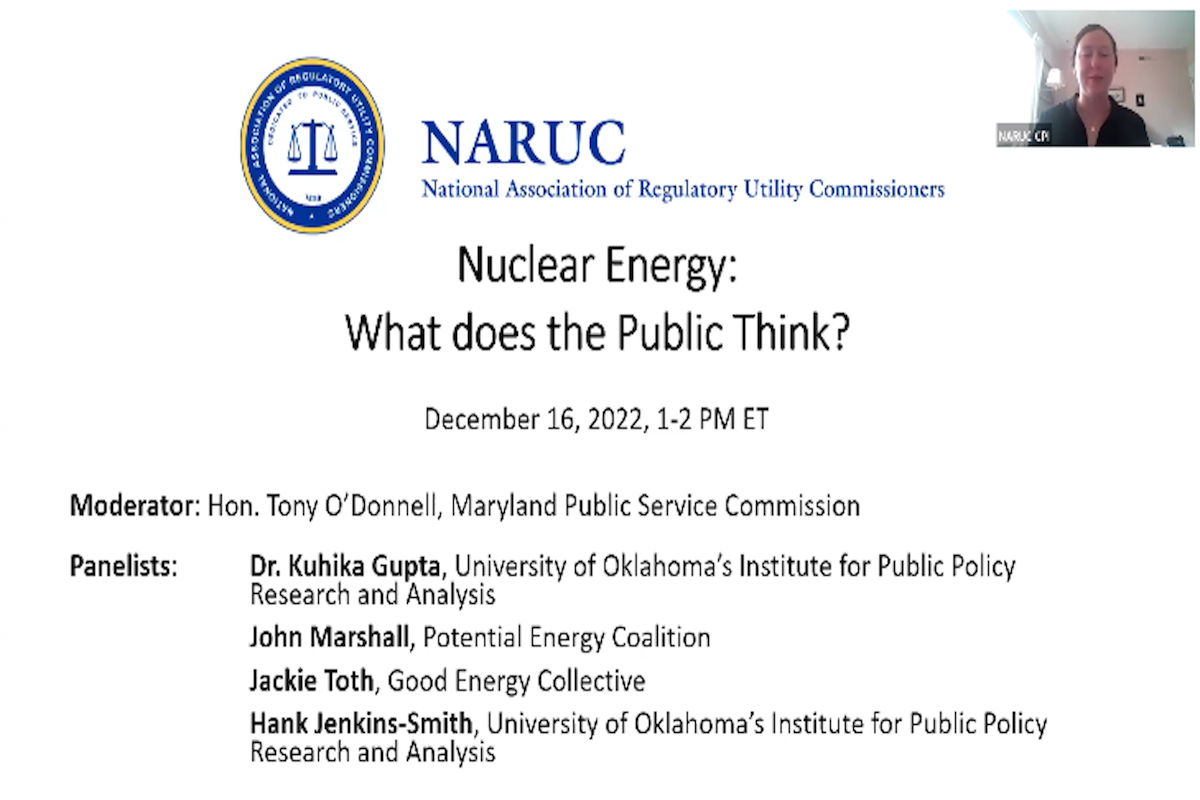Our thoughts and impressions of two films with nuclear energy themes: "The China Syndrome" (1979) and "Silkwood" (1983).

Let’s briefly summarize the films…
Jackie: Silkwood spotlights Kerr-McGee whistleblower Karen Silkwood, whose bravery, by most accounts, revealed a real-life example of a nuclear fuel developer placing expedience and revenues over the safety of its workforce. The circumstances of her death in a car accident in 1972 are still unclear.
The China Syndrome is objectively enjoyable, foremost because it features Jane Fonda. But for all the convincing camera shots of the interior of a nuclear power plant (convincing, at least, to this layman), the brief sequence melodramatizing what real atomic scientists had termed the “China syndrome” — a breach of radioactive fuel into the environment — as a nuclear meltdown that would pass through Earth’s core, is very Hollywood.
Michael: The real-life nature of Silkwood made the storytelling more effective. Despite great acting, the events in The China Syndrome feel a bit speculative – despite what happened 12 days after the film’s release.
Initial thoughts and impressions about the films…
Khalil: Silkwood and The China Syndrome were incredibly eye-opening movies that provided insight into the failings of the early nuclear industry and the public’s perception of it.
Cleo: While vastly different, both movies paint a compelling picture of an industry focused so deeply on profit that it will sacrifice safety and transparency. Inaccuracies aside, these movies from the late 1970s to early 1980s still feel incredibly relevant to the ways in which the public views nuclear 40 years later.
Jackie: A lot of art produced in our era ponders the dominance or amorality of the monied classes under capitalism. These two movies explore the exponentiated dangers at hand if a blind profit motive drives the use of nuclear energy for electricity.
Michael: It seems to me that both films are exploring the idea that the nuclear energy industry necessarily has to be this monstrous capital-driven corporate entity just like we (rightly, in many cases) imagine so many actors in the fossil fuel industry. The frame applied by the filmmakers suggests that the danger isn’t that the industry will be incredibly “evil,” but that they will act similarly to how major corporations act in this country. However, given the materials they work with, the potential harm — and size of the threat — will be much larger. But, of course, the way they are conceiving of the danger (a la the “China syndrome”) is greatly exaggerated for dramatic effect. I think even more so than the filmmakers realize themselves.
Jessica: I was at a New York City bar several years ago, and a friend’s boss in his 60s asked me what I did. When I said I worked in nuclear policy, he responded, “Oh, like a Meryl Streep-type person?” I replied “exactly,” although, at the time, I had no idea what he was referring to. I tell this story to illustrate that for older generations, these two movies have shaped a lot of the perceptions around nuclear energy, but I think they are less relevant today. (Despite working in nuclear for a decade, I thought Silkwood covered events in Hanford, WA and that The China Syndrome took place in Pennsylvania.)
There is a clear generational divide on perceptions of nuclear, and you can see it in the fact that no one on our staff had seen either of these movies before.
Ariel: As a 90s kid, I think these films helped offer a glimpse into the historic nuclear industry and the risks and justifiable fears of people working in uranium enrichment and nuclear power generation in the 1960s.
Is it clear how the movies could’ve furthered and solidified anti-nuclear energy anxieties…
Cleo: Why do people distrust the nuclear industry and those who advocate for it? Well, they have reason to. The most impactful media about nuclear shows the industry as a cutthroat insider group, willing to drive cars off the road to stop the truth of their ways from reaching the public. To whatever extent that’s true of the industry in the past doesn’t matter — the impact has been made.
Michael: It’s as if before the nuclear energy industry could really come into its own, it was being popularly labeled as a malign corporate force. It’s a believable narrative for audiences that this powerful, valuable energy source will drive corporations to prioritize their profits over communities.
Khalil: Each movie showed the distrust and a lack of understanding of nuclear energy from the public during the 1970s. Silkwood’s focus on the corrupt nature of the plant's operation and lack of general safety procedures and precautions, and The China Syndrome’s lack of actual inspection for the reactor’s structural integrity showed the failings of the early civilian nuclear industry.
Jackie: When a generation of students had just ducked and covered their way into a lifetime of concern about nuclear fallout, it’s fully understandable that the movie would leave viewers fearful that the real nuclear industry could be prioritizing profit over public safety. That Three Mile Island occurred just 12 days later is, as many have pointed out, an enormous coincidence that lent the movie’s message significant gravitas.
Cleo: These films are a clear reminder that anti-nuclear sentiment isn’t merely a symptom of misinformation and decades of anti-nuclear lobbying by traditional environmental groups and fossil fuel interests. Anti-nuclear sentiment is also reinforced by a hierarchical industry with roots in war and defense, which never meaningfully engaged the public about health and safety concerns. As a result, the understanding of nuclear power is widely shaped by movies such as Silkwood and The China Syndrome.
Ariel: The pop culture around the nuclear industry has been shaped by the perspective of the industry being "shady" or hiding the risks involved. In the future, the nuclear industry will have to grapple with these negative depictions and operate with complete transparency as much as possible to rebuild community trust.
Cleo: This still matters today. The path forward shouldn’t be simply combating misinformation and claiming that anti-nuclear sentiment is a product of propaganda. Instead, the industry needs to engage with folks and recognize the truths in these stories, but a just and safe future for nuclear is still possible.
Jessica: A slight tangent, after watching Silkwood, I looked into the true story more and was interested to learn that the real Karen Silkwood was more of a labor activist than the film portrays. While nuclear tends to get sensationalized, I think her fight to protect workers’ rights and safety is still relevant today and will resonate with workers in many industries – not just nuclear.
Also interesting to see that the main actresses in both films - Jane Fonda and Meryl Streep -- were involved in anti-nuclear activities.















































.png)























.png)






%252520(1200%252520%2525C3%252597%252520800%252520px).png)







